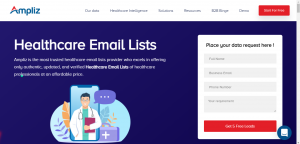Closing deals is the ultimate goal in sales! Using the correct phrases while handling calls and every sales call is crucial.
No matter how it went, it would help if you were on your toes, even after thinking you aced it. Every marketing division has a cold-calling sales guy. It is because cold calls work. It is monotonous, routine, and can backfire if not done well, but isn’t that the case with all marketing tools?
Proper research and planning are essential for any marketing campaign; the same holds good for a sales call. What you do after the sales call is also vital. The reason is, salespersons are reluctant when it comes to follow-ups.
Post Call Analysis in Sales
Firstly, what goals do you want to achieve with your sales call? Is it information gathering, creating a lead, or just a branding exercise?
These questions will give you a process to follow. If you know what you want, it is easier to get it.
A sales call needs some vital information before going for the call. You need to know and understand whom you are calling, what they do, and why they would be the ideal customer. These allow you to focus on asking the right questions, questions that lead you to the final assault. “You should also identify whether you’ll be using a business phone system or other methods to get in touch with your prospects.”
All right, so you are done with your cold call. The customer responded. Now begins the actual work. Every sales call needs to be recorded, monitored, and analyzed.
Each call is different from the other. No two customer interactions are the same. Hence, each sales call is an independent entity, and it deserves your time.
You learn a lot via analysis. It helps you understand what you have done right, but most importantly, it allows you to know what you did wrong. This method of analysis prepares you better for the next call.
How to Deconstruct Sales Routine clinically
- What was the exact objective of the call?
- Was the objective achieved?
- Did the prospect respond to all your questions?
- To which questions did they not respond?
- What questions were you able to answer?
- What questions were you unable to answer?
- Do you know the answers to these questions?
- What stage of the sales cycle would you put this particular lead-in?
- Does it require more research, or should you be closing during the next call?
These fundamental questions can take your sales call game to the next level. Once you complete a call, you now have the opportunity to create a plan for that particular prospect. It is what makes sales interesting. It is easy to overlook certain things that may be important to your sales plan.
Do not leave out the smallest detail. Building a strategy around a call takes time and effort, but with less information, you are ill-equipped.
Identifying Sales Routine Pain Points
The next important step is to identify the points raised by the prospect. What are these points, and why are they essential to the probable customers. Finding solutions to these pain points is the best way to approach the follow-up call.
Follow-up Calls
It is a sin not to follow up. Every successful sales guy knows the value of prompt follow-ups. Over 80% of leads generated over the first call fail to get a follow-up call. That is a tragedy and a sales mystery.
A follow-up call has multiple benefits.
- It shows the customer you are interested in connecting with them
- It allows you to get closer to the prospect and address their pain points
- It builds brand responsibility and leads to the eagerness of the brand to have them on board
- It shows conviction to follow up on set deadlines, which are mutually accepted.
Out of sight is out of mind. Making the appointed follow-up call at the right time ensures that you build a personal rapport with the prospect. Familiarity earns trust.
Most times, you may not remember the details of what they spoke to you about a week back, but you do. Use them to your advantage. Remind them that these are the points you talked about; these are the issues they currently face, and then move ahead to give them solutions.
Tips to Prepare for All-Important Follow-up in Sales Routine
Here are some pointers that allow you to prepare for the all-important follow-up:
- What is the schedule for the follow-up call?
- Do you have all the answers to their queries?
- How do you wish to proceed with the ring?
- Do you have to involve your peers or your managers?
- Do I have my pricing guidelines ready?
- Is it possible to club other products if they are willing to purchase them?
These questions will set you up nicely. Acknowledge the previous call, summarize it shortly, and answer their questions and inquiries. You may or may not be able to seal the deal with a follow-up call.
Depending on the prospect’s position along your sales pipeline, ensure that you fill them up as required. Do not bore them again by going through your product benefits back at length.
You can always give your prospects a highlighted version, touching up as fast as possible. It allows them to get into the same groove as you.
Bonus Points for Sales Routine
One of the favorite things that cold call sales executives do is send an email when the first call is over. It increases trust and allows the prospect to know that you are genuinely interested.
Summarize the call, what you spoke about, and state the date and time you confirmed for the follow-up call. This way, they will have a record of the request.
Before you make the follow-up call, you can send your prospects an email that tells them you will make the follow-up call.
In case your prospect is unavailable, he will reply. If they don’t respond, most likely, your candidate is available; send these emails via your official company email address. You can always ask them to opt-in to your newsletter roll.



